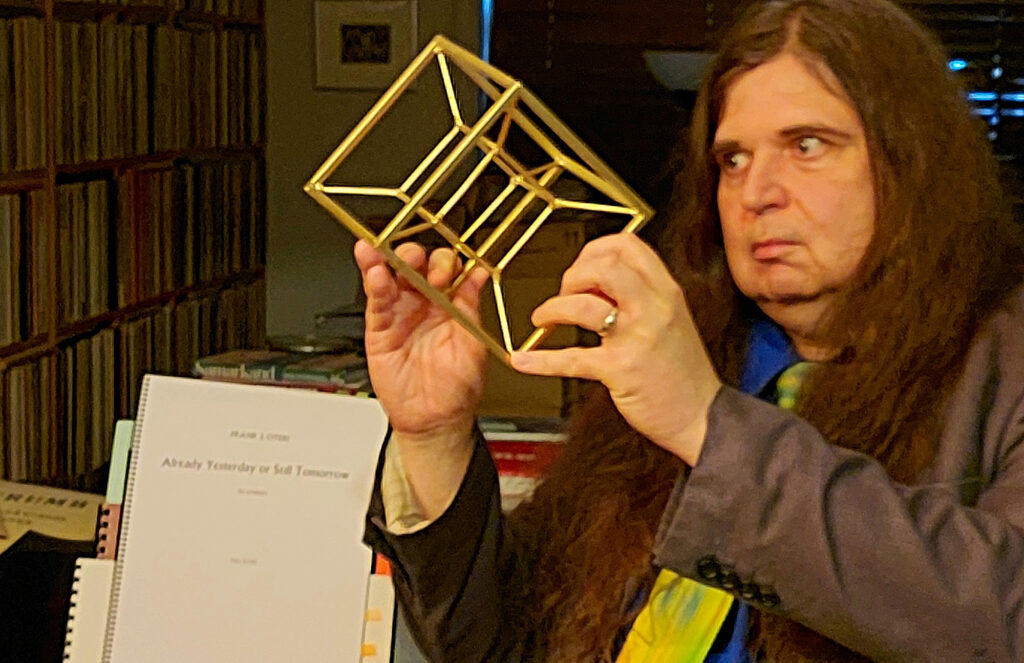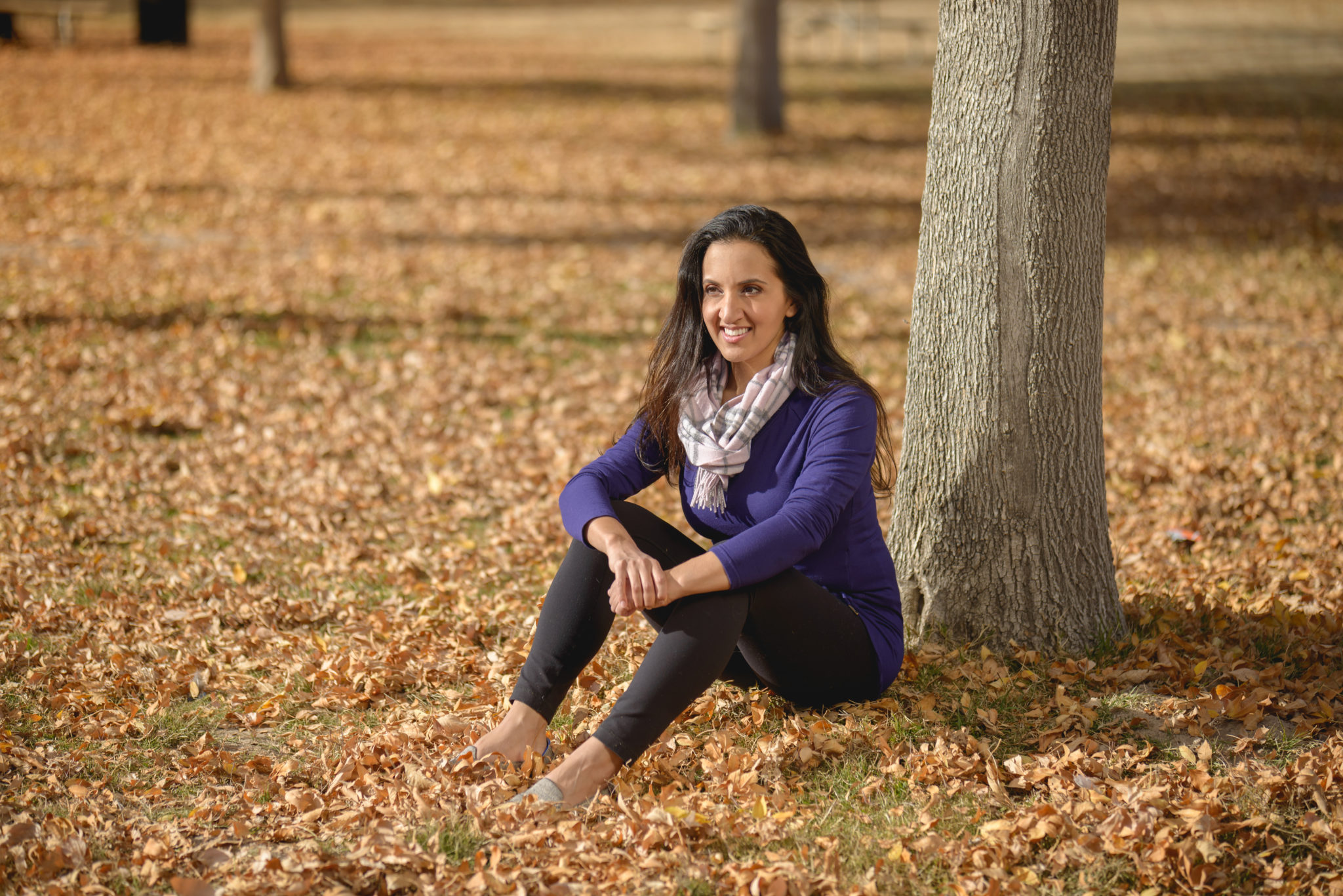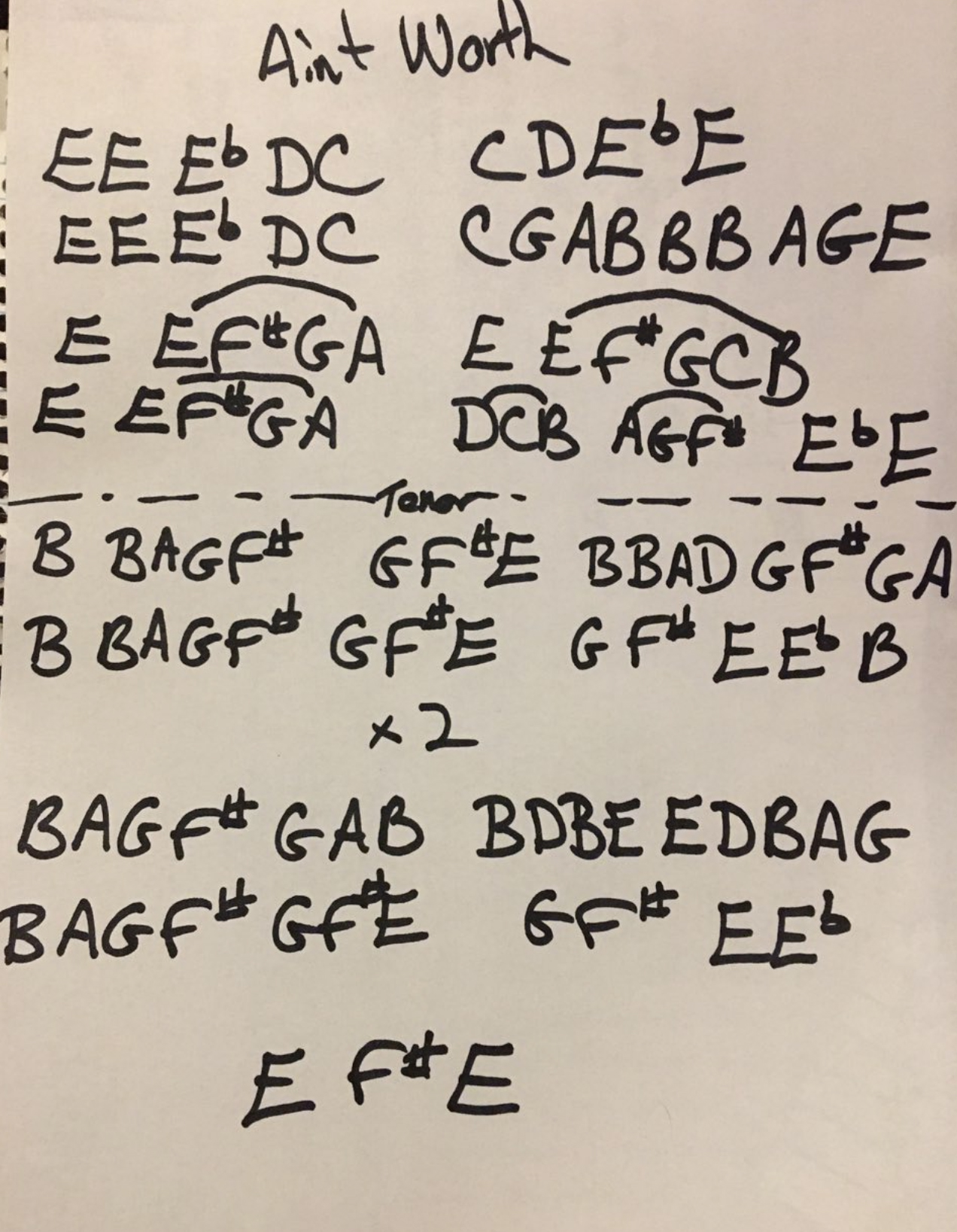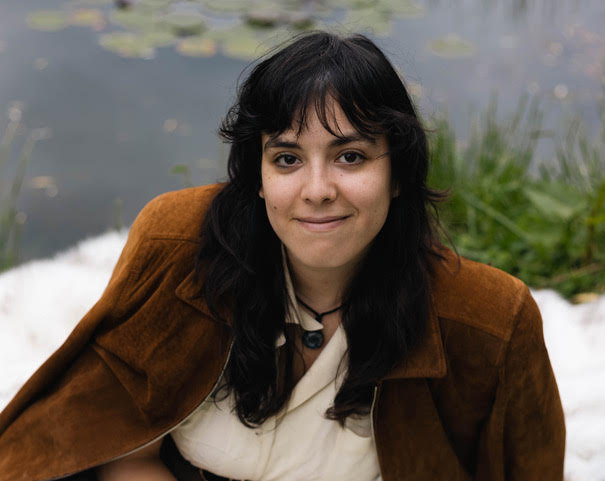After nearly a quarter century of continuous work as the Editor of NewMusicBox and also eventually as Composer Advocate for what was originally the American Music Center and which in 2011 became New Music USA, I am resigning from...
This is one of the most difficult things I have ever had to write in my life. After nearly a quarter century of continuous work (more than half my adult life) as the Editor of NewMusicBox and also eventually as Composer Advocate for what was originally the American Music Center and which in 2011 became New Music USA, I am resigning from my full time work here to devote more of my energies to being an educator. I have accepted a full time faculty position as Assistant Professor of Musicology at The New School’s College of Performing Arts (which includes The Mannes School of Music).
Back in the 1990s, I was one of the myriad aspiring composers in New York City (where I grew up) and, after getting a Master’s Degree in Ethnomusicology at Columbia University (which I did after teaching English as a Second Language in NYC public high schools for several years, my first job after my undergrad studies at Columbia), I balanced my compositional activities with a four-day-a-week day job at a music publicity office in order to pay bills. The roster of clients there included Meet The Composer (whose founding director John Duffy became something of a mentor to me and who at one point gave me his entire LP collection) and the Finnish recording label Ondine (which frequently collaborated with an organization called the Finnish Music Information Centre, which is how I learned about the International Association of Music Centres [IAMIC], before I even knew there was an American Music Center, even though it was then just four blocks away from where I had been living for most of my life). But the American Music Center (AMC) would soon become the most important place in the world for me.
While working for that PR firm, I had written a handful of articles for various publications and created repertoire lists of contemporary music that I distributed to programmers at NPR-affiliated radio stations, a personal project for which I was not paid but for which I was written up in Billboard magazine at one point. As a result of some AMC board members knowing about me through some of these activities and the more official ones that were part of my “day job,” I got on the radar of Richard Kessler, a visionary who had been recently appointed AMC’s Executive Director and who wanted to completely transform the organization from a passive library to an active advocate for new music in the United States. Central to his vision was for AMC to host a newly created web magazine exclusively for American new music and he wanted to bring on someone to come up with a format for this thing and to then serve as its “Editor and Publisher.”
I met with him even though I had absolutely no experience in publishing, had only written that handful of articles, and did not know all that much about this relatively new thing called the internet other than using AOL and surfing UserNet comments about contemporary music. (It was the ’90s afterall.) But it must have been clear how passionate I was about contemporary music and how willing I was to always defend it and evangelize for it. He ultimately offered me–and I unhesitatingly accepted–a full-time job (5 days a week, often much more than that) at a lower salary, put my own music on the back burner to some extent, and began work at the American Music Center on November 16, 1998. For most of the last nearly 25 years, I considered it a dream job–a vital role in the ecosystem of contemporary music in the U.S.A. and something that could raise the profiles of all the extraordinary people involved in making this music in all its wild varieties, which was far more important to me than focusing just on my own music.
I believed strongly, and still do, that practitioners should be the people who speak and write about this music since they have the most intimate knowledge of it, the greatest passion for it, and need their own outlet to disseminate information about it. I also believe that the strength and significance of NewMusicBox in our field is because by design it is a collaborative project and, for most of the time I have served as its titular Editor, I was thankfully mostly not alone in my endeavors, always working non-hierarchically with others who frequently had more strength than I did proofreading, juggling various pieces of content to always maintain a balance, keeping us on track with deadlines, and on and on. This first quarter century of NewMusicBox would never have been possible without the efforts of Nathan Michel, Jennifer Undercofler, Molly Sheridan, Amanda MacBlane, the late Randy Nordschow, Trevor Hunter, and Alexandra Gardner who were as devoted to NewMusicBox while they were part of it as I have remained all these years. There were also a great many interns, some of whom I have still stayed in touch with and not all of whom I can remember (for which I apologize). But I want to at least give a shout out to Sam Birmaher, Anna Reguero, Aurelian Balan, Jonathan Murphy, and Daniel Kushner for the high level of work they did while involved with NewMusicBox as well as to Johanna Keller, founder of the Goldring Arts Journalism program, the first master’s program of its kind to teach journalists to cover the arts, who sent interns our way every summer until she retired. I almost forgot to mention some of the web design artisans I realize in retrospect that I frequently frustrated with my often not very practical ideas, among them Stacie Johnston, Lisa Taliano, and Eugene Takahashi who once during a phone call with me at 2 A.M. claimed that he would have to invent a four-dimensional internet to do some crazy thing I’d asked him to do. NewMusicBox has been at its most effective when a small team of people worked on it together, brainstorming (and sometimes even passionately arguing about) who and what to feature and why, as well as getting in the weeds and carefully copyediting and coding every word, photo, audio, or video file that was then disseminated to the general public.
And it’s been quite a ride as anyone who has ever ventured into our quadranscentennial content stream would hopefully agree. I’ve been proud of so much of what we’ve published from artist/writers based all over the country and am grateful to everyone who has ever written for us. I’m also glad that all this material is still available for people to read online now and hopefully in perpetuity. And I hope that this content will continue to be constantly refreshed with new content curated by future NewMusicBox editors who will also always insist on pushing the envelop. Of course, since they’ve been a hallmark of NewMusicBox since its inception and I have been intimately involved with most of them, I’m proudest of our in-depth conversations with significant members of our community which were originally called “In The First Person,” subsequently rebranded as “NewMusicBox Covers,” and which have continued to this day, now as SoundLives podcasts. I treasure every one of them and hope that others will continue to do so as well. What many people may not realize is that the back stories of these one-of-a-kind encounters were sometimes as intense as the edited talks we published. I’ll never forget Randy and I showing up at Ornette Coleman’s Midtown loft, entering his unlocked apartment, and waiting for him to appear there nearly half an hour later, but then immediately plunging into a heady conversation about sound being a way to express emotions more than being a vibration. Or Glenn Branca refusing to put out his cigarette directly underneath a no smoking sign, despite Alex’s and my own visible discomfort in the rehearsal studio where we were recording which had no ventilation. (He had refused to let us come to his home.) Or Maryanne Amacher wanting to take a sample of my blood and mix it with hers for an audio project. (You can’t make this stuff up.) Or, to give a more recent example, Pamela Z describing putting a trunk full of bones through airport security (it was a prop for a performance) and my worrying the whole time that the internet was going to suddenly drop during our Zoom before the punchline (since it’s frequently spotty in my neighborhood and kept going in and out that day); thankfully it didn’t!
However, last year when I was asked to develop my own curriculum for an undergraduate contemporary music history class I would then teach at The New School as an adjunct and told that I could and should cover all genres of music, it was an offer–like the offer to create a web magazine for contemporary American music and then be responsible for maintaining it–I couldn’t refuse. As luck would have it, I was asked if I’d be interested in teaching that class by someone who had already changed the course of my life once and was inadvertently about to do so again, Richard Kessler, who is now the Executive Dean of The New School’s College of Performing Arts and the Dean of the Mannes School of Music. We had had some contact with each other over the many years since he left AMC, but I truly had only a glimmer of awareness about the range of activities going on there. I was wowed by a 2017 performance of Robert Ashley’s Dust by Mannes students just three years after Ashley died. The following year’s Mannes Orchestra world premiere of Julius Eastman’s only recently rediscovered second symphony in Alice Tully Hall was a watershed event. I’d hear from time to time that someone significant in our community was teaching a class there which made me more curious. After doing some deeper digging I realized that many of my personal musical heroes from the past also had ties to either Mannes or The New School, or both, either as faculty or students, or both–e.g. Charles and Ruth Crawford Seeger, Henry Cowell, Johanna Magdalena Beyer, John Cage, Bohuslav Martin?, and salsa pioneer Larry Harlow (who got an M.A. in philosophy there!), to name just a few of the music folks. Needless to say I wanted to be a part of it too somehow, though it was incredibly humbling, so I again said yes.
Thus far I’ve taught three sections of that music history class and last semester I was additionally assigned a graduate seminar on minimalism and postminimalism which I also developed from scratch, talk about deep dives. It’s been hard work, though it has been completely worth it because I feel I’ve had a really huge impact on many students and the students I’ve taught there thus far have been a constant source of inspiration to me as well. But leading such a double life was ultimately not sustainable. So when I learned from an email message sent to all the part-time faculty at The New School that there were nine full time faculty positions that were open, I interviewed for a position (something I hadn’t done in 25 years!) with representatives from all the divisions in the College of Performing Arts. I learned earlier this month that they hired me. Having a full-time faculty position will hopefully give me even more opportunities to develop curricula for which my goal, just like at NewMusicBox, is for it to always be as broad as possible.
But that doesn’t mean I’m retiring from the contemporary music scene. Far from it. I still plan to be heavily involved both in the United States and abroad, wearing nearly as many different kinds of hats in it as I always have (even though I will always refuse to wear corporeal hats). I will still serve as Vice President of the International Society of Contemporary Music (ISCM) and, in late November, will be attending the ISCM’s first-ever World New Music Days festival on the African continent, which has been in the works for several years. And in late December, I will be at The Midwest Clinic International Band, Orchestra, and Music Conference in Chicago and then at the Chamber Music America conference in New York City in January, as per always, and will also attend as many new music concerts as time allows wherever I am. I plan to explore other avenues for writing about music whenever and wherever as well. And I also plan to write some more of my own music, something I managed to do a fair bit of again during the worst phase of the pandemic, but which, because of all the other stuff I’ve been doing, has become harder to find time for during our current seemingly (let’s hope) post-pandemic era.
I gave this essay the title “Waking Up From a Dream Job” which might be interpreted by some as tragic or, at the very least, terribly melodramatic. That is not my intent. Partly I just love a catchy title, and so I couldn’t resist coming up with one (that I hope is) for one last time on this site. (Actually there are few other pieces of content by other writers I’m editing that are still in process, so it’s not exactly the last time; stay tuned for those.) Admittedly it does feel like waking up after an extremely long and amazing dream. But even though I rarely get a full night’s sleep and don’t plan to anytime soon, I still have many other dreams to dream and hope to continue to dream along with others about this crazy thing that for a lack of a better term we still and will probably always call new music. May it never be boxed in.

Oteri is still mesmerized by the tesseract which was the original logo of NewMusicBox. (Photo by Trudy Chan.)
The post Waking Up From The Dream Job first appeared on New Music USA.
The post Waking Up From The Dream Job appeared first on New Music USA.















